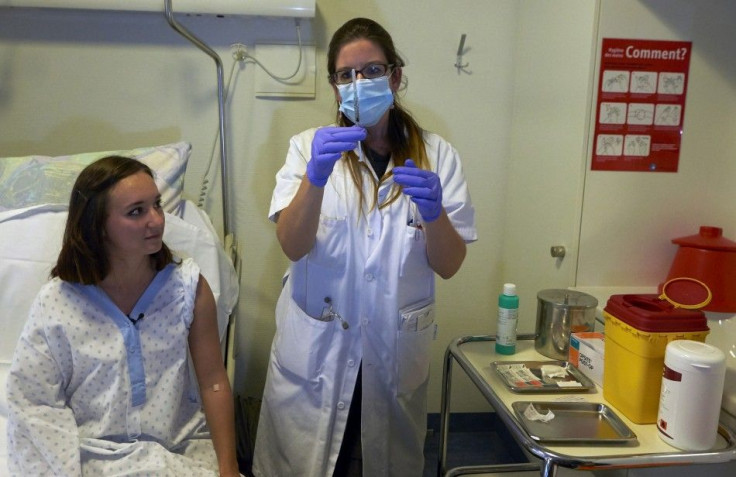Cure Against Ebola May Already Be Found In 53 Existing Drugs – Researchers

A group of researchers from the Icahn School of Medicine at Mount Sinai in New York, NY, and the National Institutes of Health has raised the prospect that the cure for the deadly Ebola virus may actually be already contained in at least 53 existing drugs.
Their study, published in the Nature Press journal Emerging Microbes and Infections, said the drugs that could combat the Ebola virus from entering human cells were several cancer drugs, antihistamines, antibiotics, and antidepressants. The microtubule inhibitors used to treat cancer were in fact one of those identified as among the most effective at keeping the virus at bay.
The team used "miniaturized, high-speed technology" to screen samples of 2,816 existing compounds that have been approved by the Food and Drug Administration (FDA) for other ailments. The researchers said they designed the screening process to immediately identify compounds that could block the fatal Ebola virus from entering and infecting human cells by at least 50 percent.
However, the team didn't work with a live and present Ebola virus. Instead, they created a particle composed of Ebola proteins. It impersonated the virus but still lacked the genes and proteins that make Ebola deadly. They then inserted a fluorescent protein into the virus, enhancing the speed of the screening.
From their findings, Adolfo García-Sastre, PhD, director of the Global Health and Emerging Pathogens Institute within the Icahn School of Medicine at Mount Sinai and study lead author, recommended that it might be useful "to rapidly develop useful treatments against Ebola infection," noting that "repurposing existing drugs may be among the fastest ways" to achieve an immediate vaccine against the Ebola virus.
"Many of the compounds identified in this study promise to become lead compounds in near-future drug development efforts studies targeting this virus," García-Sastre said. There is no approved treatment yet for the Ebola virus infection. It has infected some 18,603 people, of which 6,915 have died. The estimated mortality rate of the current outbreak is 70 percent in many areas. Although trials for Ebola vaccines are underway, they wont be available for some time.





















